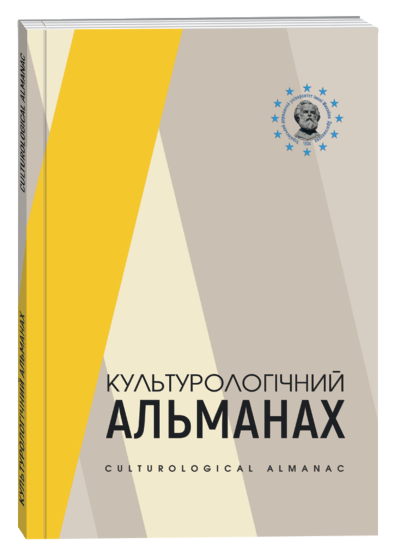“ON SCIENTIFIC IGNORANCE” BY MYKOLA KUZANSKY: THE PROBLEM OF A HUMAN
DOI:
https://doi.org/10.31392/cult.alm.2022.4.17Keywords:
Mykola Kuzanskyi, scientific ignorance, maximum, minimum, human, self-realization of personality, self-creationAbstract
The article analyzes the main work of one of the most prominent representatives of the Western European Renaissance, the Neoplatonist philosopher, theologian and humanist Mykola Kuzansky “On Scientific Ignorance”, as well as the treatise “On Assumptions” as an organic addition to this work. The formulation of the core idea of this article consists of statement that despite his high status as a cardinal of the Catholic Church and the fact that this post required him to direct all his intelligence to the development and improvement of the theological doctrine, which Mykola Kuzansky did, one of the main themes of his teaching, along with theological themes, is a man and his life, the main meaningful purpose of self-realization of the personality and self-creation. The main definitions of the phenomenon of self-realization of an individual is a problem that was actualized only in the last century by the famous American researcher A. Maslow, who is separated from the German scientist by more than five centuries. This fact favorably characterizes M. Kuzansky as one of the first in Western European intellectualism to accurately capture the worldview spirit of the Renaissance as an era that proclaimed the so-called “search for individuality”. The famous concept of M. Kuzansky about the maximum and the minimum is highlighted, their dialectic is shown, which consists in their opposition and at the same time in their coincidence. The lines from the work “On Scientific Ignorance” that characterize this problem are given. The idea of a person as a maximum and as a minimum is substantiated, and his life activity in this context is shown. A number of provisions regarding the self-realization of the human individual have been formulated, which, by assumption, as well as based on the text and spirit of the treatises “On Scientific Ignorance” and “On Assumptions”, can be attributed to M. Kuzansky’s views on the nature and purpose of man. It is about Anaxagoras “everyone is in everyone”, which M. Kuzansky writes about, the possibilities (and in fact the impossibility) of human knowledge of the maximum, as well as about self-creation as the purpose of a person’s meaningful life. All theoretical statements of the article are confirmed by excerpts from the specified works of M. Kuzansky.
References
Баткин Л. (1989). Итальянское Возрождение в поисках индивидуальности. Москва : Наука. 199 с.
История диалектики XIV–XVIII вв. (1974). Москва : Мысль. 356 с.
Історія філософії. Словник / за заг. ред. В. Ярошовця (2006). Київ : Знання України. 840 с.
Маслоу А. (1982). Самоактуализация. Психология личности. Тексты. Москва. С. 108–117.
Муляр В. (1997). Самореалізація особистості як соціальна проблема (філософсько-культурологічний аналіз). Житомир : ЖІТІ. 214 с.
Кузанский Николай (1979). Об ученом незнании. Сочинения : в 2-х томах / Николай Кузанский. Т. 1 ; перевод, общ. ред. и вступит. статья З. Тажуризиной. Москва : Мысль. С. 47–184.
Кузанский Николай (1979). О предположениях. Сочинения : в 2-х томах / Николай Кузанский. Т. 1 ; перевод, общ. ред. и вступит. статья З. Тажуризиной. Москва : Мысль. С. 185–280.
Тажуризина З. (1979). Николай из Кузы. Сочинения : в 2-х томах / Николай Кузанский. Т. 1 ; перевод, общ. ред. и вступит. статья З. Тажуризиной. Москва : Мысль. С. 5–45.
Тажуризина З. (2010). Философия Николая Кузанского / под ред. В. Соколова. 2-е изд., стереот. Москва : Книжный дом «Либроком». 152 с.
Шестопал Е. (1988). Личность и политика: Критический очерк современных западных концепций политической социализации. Москва : Мысль. 203 с.








